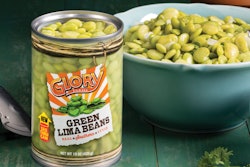
Packaging World:
What role do packaging material innovations play in driving business growth?
Carlo Rotunno:
They have a key role. My obsession is on addressing consumer needs—we have such tight margins that we can’t change our packaging without addressing consumer needs.
Where is the sweet spot between the design and technical elements of packaging? How should the two sides be working together to create a truly great product that speaks to the customer?
It’s a critical connection. Design should be used as a base for advertising and emphasizing the technical characteristics of packages.
As a packaging professional what is the biggest disaster you’ve witnessed, and what did it teach you?
Not a disaster per se, but one example I experienced concerned a product launch where we introduced a great product with an innovative packaging solution, but we underestimated the merchandising complexity in the local market. We therefore had a failure of the product because it was not standing out on the shelf. Great product, amazing packaging solution, but merchandising must play a key role in the process.
A key theme within the packaging industry now is the issue of carbon footprint and sustainability. Do you believe companies are finally starting to take the issue seriously? Is there still resistance where the “green” way of doing things is not the most cost-efficient way?
I think there is an absolute trend that is perceived by businesses in going greener. Within our area of influence, we are quite green already because a big part of our portfolio is in cartons, and we use recycled paper where possible. We have weight reduction projects in place for cartons and flexible packaging too. “Less is more” is a good philosophy because we reduce both the carbon footprint and also the cost. So, it’s not necessarily more expensive to go green.
What are the three biggest challenges you face daily?
* Influencing business partners about the value of packaging innovation, to put it at the top of their mind
* Making partners obsessed with print quality designs
* Energizing and keeping my team focused on packaging innovation
What do you foresee as being the biggest game changers in your industry over the next five to 10 years?
Five years—new distribution channels. For example, e-commerce where there are unique cold chain challenges and considerations. Ten years—making packaging a vehicle for allowing frozen food products to look warmer, to not look so icy and stand out more through the cabinet doors. This could be achieved potentially through the packaging itself or digital elements such as augmented reality.
Editor’s Note: Carlo Rotunno will be presenting a talk, “How to Increase the Perceived Value of Products Through Packaging,” at Packaged—The 6th Global Summit, June 19 - 20 at the Okura Hotel, Amsterdam. Learn more about the event at www.packagedsummit.com.





















